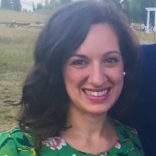El vecino de Reinosa, Jorge Pérez, ha llegado a la final de Supervivientes, el concurso de Telecinco, después de salvarse en la nominación de la última gala celebrada en Honduras. Como bien indica la web del espacio, se trata de un guardia civil que saltó a la fama después de que una foto suya, vestido de uniforme, se hiciera viral en redes sociales. La imagen publicada por la cuenta oficial del cuerpo cambió por completo su vida, saltó a la fama y ahora triunfa como modelo.

2020-06-02
2020-06-01
CIERVO VULNERADO
Soy ciervo vulnerado
Marcho a la caza de tu huella...
¡Oh amada más dura que mármol
A mis quejas!
Salid sin duelo lágrimas
corriendo
No me quitarán este dolorido sentir
Música triste
De citaras sonante...
Hay en el bosque
Robles señalados con tu nombre
Sabrán que escrita fuiste
Por aquel que siempre tuviste
De tu memoria borrado
Garcilaso de la Vega contemplando a su amada convertida
en ninfa que navega las aguas del Tormes
BURROS DE NORIA
Vamos cual asnos de noria moruna
Los ojos tapados
Dando vueltas a la parva de los días
Pisando calendarios
Pasan los meses y los años
Circulo y compás de los días
El camino de las estaciones
Nos hizo viejos
Dicen que hay tres silencios
El de quietud
El de la palabra
Y el del pensamiento
Y yo añadiría un cuarto
El del burro de carga
Que gira la noria
Del tiempo
Como nosotros
Mortales uncidos
Al yugo del destino
Claudicando al
orgullo
Fuimos vencidos
Por el deseo de cambiar el mundo
Y ser algo
En inane afán de notoriedad
La política y la literatura sin embargo es el oficio del
ganstger
Ignorante y sin cultura
En lo alto del púlpito del micrófono
Y la paráfrasis
Conjugamos un mundo mezquino
De lujuria, avaricia, egoísmos
Y fornicios
Todos nos convertiremos en parásitos
Malditas sean las espadas
poema del primero de junio
La garba
Garba y Garomancia
Estad serenos
Boliche por los
tugurios
Guardad vuestros
modales
No te aflijas al huir
Smetana luz que
ilumina descarriados
El circulo diabólico
del pensar
Se desparrama
Sobre la testuz del
bisonte
Honran ellos a la
diosa razón
Y yo adoro a Hércules
Oculto en la cava
Florinda
Secretos de mi patria
En lucha contra los
diablos
Que sube del infierno
Moviendo coleta y
rabo
Caliento mis pies
cuando hace frió
En la gloria del
hipocausto
Hortus conclusus
Jardín cerrado
Hermanos de la vida
en común
Me leo el Kempis
Que decía
Entre los
rinconcillos
Y los librillos
Pero vete tú a saber
Cuando me toca la
almaceda
Los tiempos son duros
Guardemos silencios
absolutos
Sumidos en ese
autismo mistico
Que nos
beneficia
INVOCACION AL ESPIRITU SANTO CONTRA LA PANDEMIA SANA QUOD EST SAUCIUM
INVOCACION A
SANCTISPIRITUS
Veni sancte
spiritus et emitte coelitus lucis tuae radium
Vi pater pauperum
Veni dator
munerum
Veni lumen
cordium
Consolator optime
Dulcis hospes
animae
Dulce refrigerium
In labore requies
In aestu
temperies
In fletu solatium
O lux beatissima reple cordis intima tuorum fidelium
Sine tuo numine
Nihil est in
homine
Nihil est
innoxium
Lava quod est
sordidum
Riga quod est
aridum
Sana quod est
saucium
Flecte quos est
rigidum
Fove quod est
frigidum
Rege quod est
devium
Da tuis fidelibus
in te sperantibus
Sacrum septenarium
Da virtutis meritum
Da salutis exitum,
Da perenne gaudium
Amen
aleluya
2020-05-31
UN GUARDIA CIVIL QUE LAS VUELVE LOCAS
El 'sex symbol' cántabro de la Guardia Civil llega a la final de Supervivientes
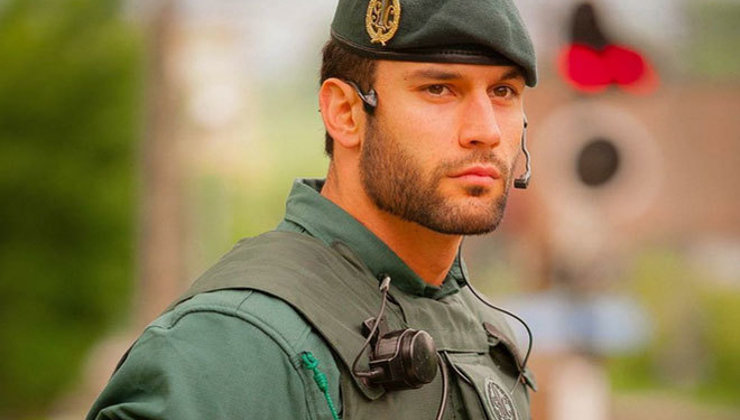

26/05/20
no habrá campamento para los niños judíos usa a causa de la pandemia este verano
Those Jewish camps that are open this summer? This camp doctor and nurse think it’s a bad idea.
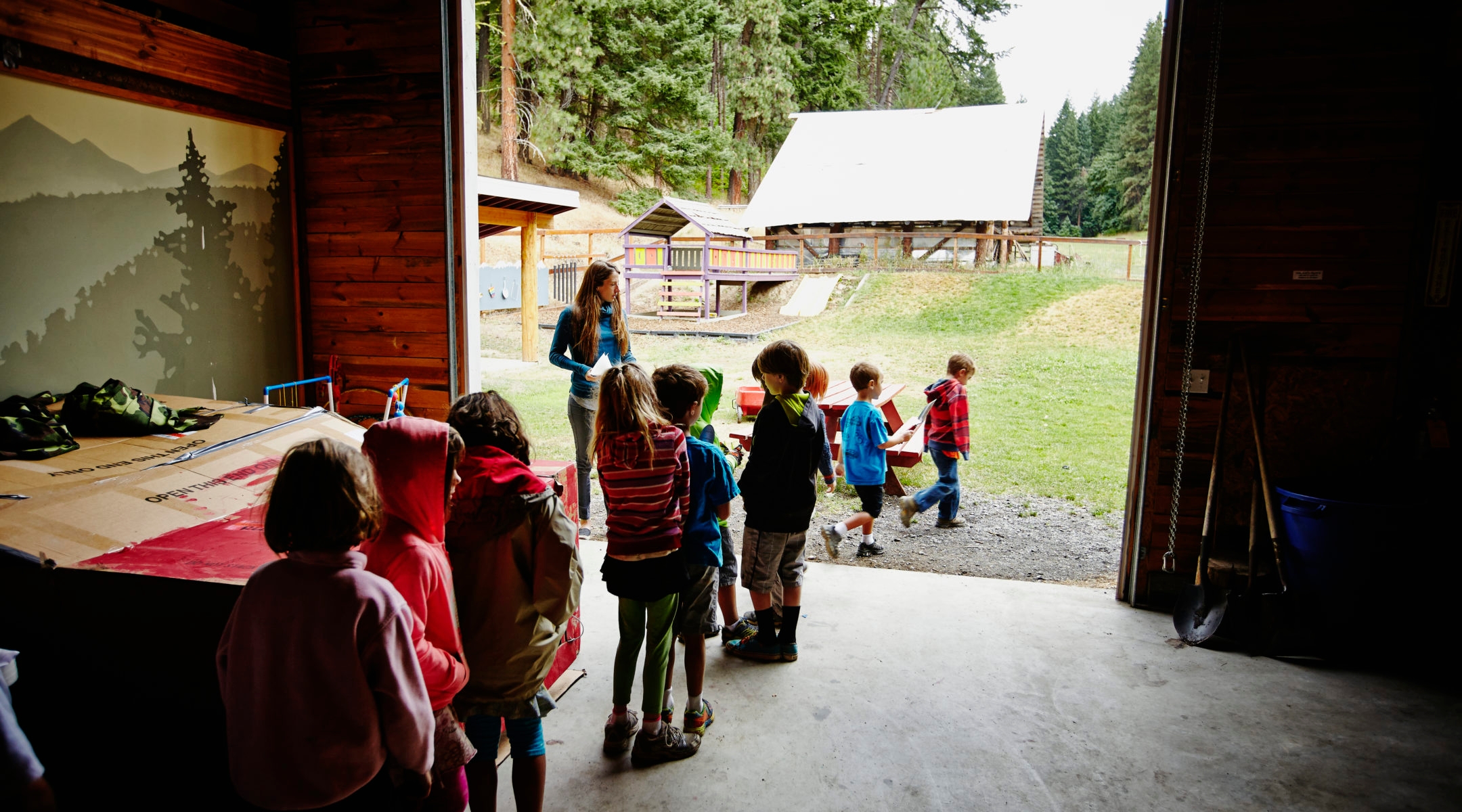
A counselor lines up campers to go outside. (Getty Images)
ADVERTISEMENT
DENVER (JTA) — In the summer of 1999, we slept head to head in top bunks at Camp Ramah in Canada. We also shared a viral upper respiratory illness that kept us from participating in the much-anticipated yom bli shemesh (a day without sun) while the rest of our cabin got to experience a day of camp in the middle of the night.
We had to stay in bed for a few days, but soon recovered and enjoyed another invaluable summer.
Jewish summer camp made us into the adults we are today. Now we work side by side in the Emergency Department of a major children’s hospital — Heather as a nurse and Ali as a pediatrician — and have also both served in those roles at a Jewish summer camp.
When we read that Camp Modin in Maine will be opening this summer, we gaped in disbelief. Not because the camp is opening, but because of how unworkable its plan seems to be.
PUBLICIDAD
Reasoning that you can “create a bubble at camp” is at best a flawed idea. While chartered flights and reduced movement in and out of camp are certainly interesting ideas, there are sparse details on the medical logistics of opening camp, and the risks to the surrounding community — people who encounter and even potentially work with the camp — were also not discussed. If any of us want to safely return to camp in the near future, these things need to be addressed.
Camp Modin plans to test campers for COVID-19 at home prior to their arrival at camp. Heather, who has been performing the uncomfortable coronavirus tests as part of our hospital’s disaster response team, worries about the difficulty of correctly swabbing the posterior pharynx, the part of the throat behind the nose that is accessed with a long and uncomfortable swab.
And testing can only tell us so much. What about the contacts that a camper or family member has in the intervening days or weeks prior to arrival at the camp gates? What if the camper was in a latent stage and was not yet showing signs of infection when they were tested? What if the camper was in the late stage of infection that would not show a positive test? What about the camper that needs to be taken to a nearby hospital for a non-COVID-19 related injury and encounters the virus there?
There are so many remaining possible routes of introducing the virus into the camp. The PCR test that determines whether a person is currently infected with the novel coronavirus is not sensitive or specific enough in asymptomatic patients to be used as a “pass” yet, nor is the antibody test. At home testing will create an illusion of safety without actually providing it.
Kids aren’t getting that sick (for the most part.), and we are so thankful for that. But the novel coronavirus can spread from children to adults — and young healthy adults and yes, even children, can become severely ill and die.
How will camp Modin (and others planning to open) protect its medical staff?
As a camp doctor and nurse, we are not typically worried about contracting viruses or strep from our campers — but this summer we are. The field guide for the American Camp Association, prepared by Environmental Health and Engineering Inc. recommends N95 masks, gloves, gowns and face shields for all camp medical staff. If the camp is planning to routinely test a community of 300 campers, how many precious N95 masks will be spent on opening a summer camp?
If all of the 8,400 overnight camps in the U.S. were to open this year, according to ACA recommendations, the amount of PPE used could amount to hundreds of thousands of masks. Are we really OK taking these resources away from frontline workers and long-term care facilities? Will camps provide the same protections to maintenance workers doing the cleaning and sanitizing and then returning to their rural communities each night?
Instilling Jewish values in campers and staff is a primary goal of most Jewish summer camps. How can we instill those values if our actions clearly show little regard for others and a selfish consumption of scarce resources?
We’re left with nothing but questions: Where would the campers sleep when ill? Will the camp isolate all campers with symptoms of illness, or only those with fevers? Who is going to care for children who are sick for weeks? At the end of the day, when a child has a prolonged illness, a camp doctor or nurse in a face shield, mask and gown is pretty cold comfort when mom and dad are hundreds of miles away.
With outbreaks in many other close living situations such as prisons, long-term care facilities, meat processing plants and even at home, we truly fear that summer camps opening before these questions are definitively answered could be disastrous. We hope for the best for Camp Modin and any other camp that chooses to open. But our obituaries won’t say “doctor and nurse couldn’t face one missed summer at camp,” and we won’t put the surrounding rural communities of our beloved camps at risk by bringing kids from hot-spot regions together in their backyards.
These ideas reflect our own opinions and not those of our employers or any health care facility at which we work.
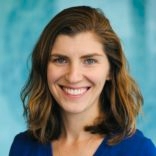
is a general pediatrician practicing emergency and urgent care pediatrics. She also serves on the medical committee of Ramah in the Rockies and spends time there annually as camp doctor. She lives in Boulder, CO with her family.
la oracion el mayor alivio contra el virus
I started watching this German rabbi praying alone early in the pandemic, and I couldn’t stop
BY BEN HARRIS
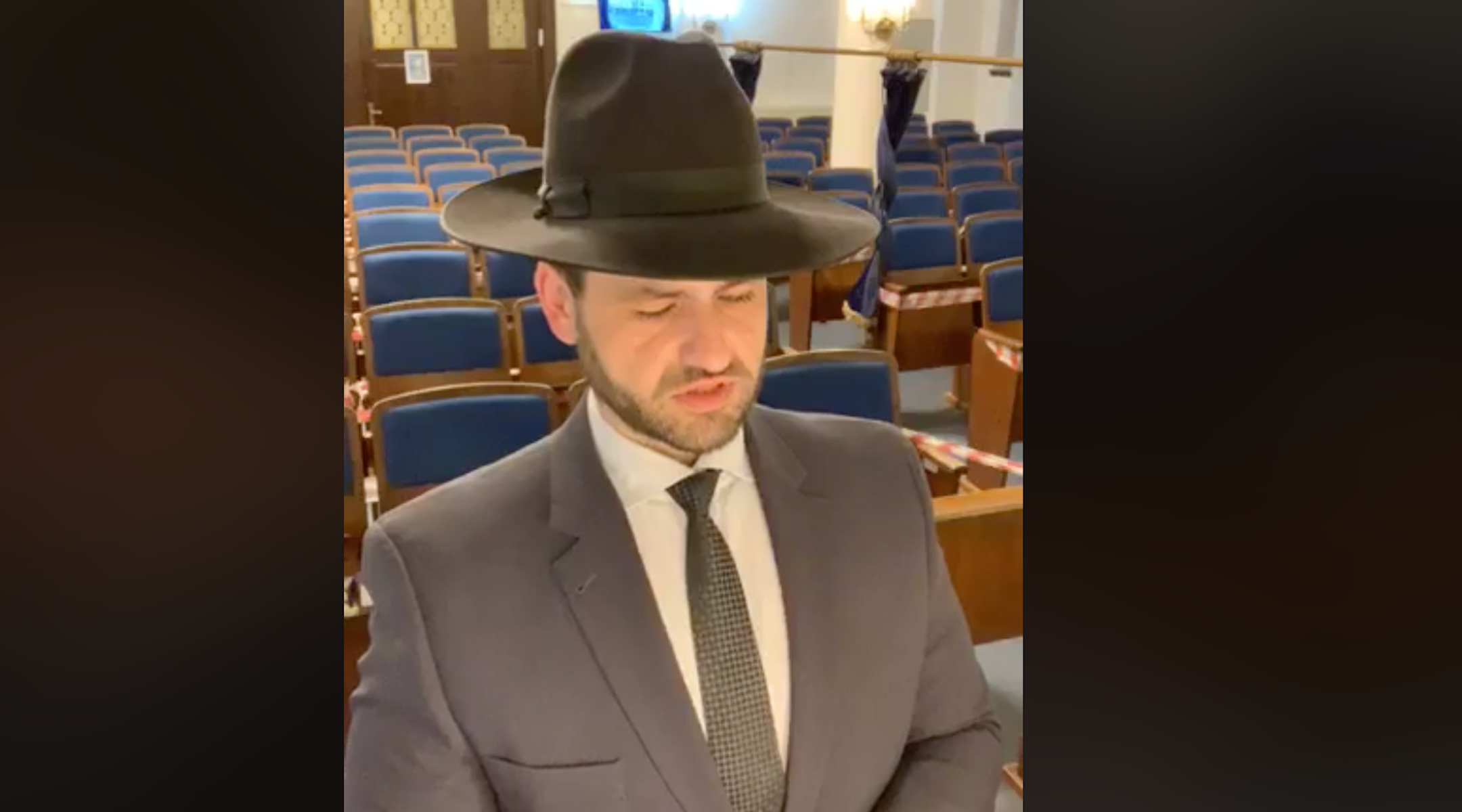
Rabbi Zsolt Balla prays alone in his synagogue in Leipzig, Germany, during the coronavirus crisis. (Facebook screenshot)
ADVERTISEMENT
(JTA) — On a Friday early in the coronavirus crisis, isolated in my apartment and facing the first of what would be many weekends with only Netflix for companionship, I came across a live Facebook video of Rabbi Zsolt Balla praying alone from the pulpit of his synagogue in Leipzig, Germany.
I had met Balla years before reporting for the Jewish Telegraphic Agency in Europe. I had attended Friday night services at the synagogue and a wedding a few days later — the first Jewish nuptials held there since the Holocaust.
One of the first ordainees of the reconstituted Hildesheimer rabbinical school in Berlin, Balla settled in Leipzig with his wife in 2010 and began slowly rebuilding a Jewish community rejuvenated by the arrival of thousands of Russian Jews. Balla had even managed to sustain a daily prayer service before the coronavirus shuttered the country’s synagogues. Now here he was, praying alone into a computer, the rows of empty pews visible over his shoulder. It broke me to watch.
As the weeks unfolded, Balla would occasionally pop up in my feed. I’d click through and spend a few minutes watching him lead the prayers, his booming baritone echoing through the empty sanctuary behind him. Sometimes it was a weekday morning and he would be wearing his tefillin. More often it was Friday night, and he would chant the psalms welcoming the Sabbath in his pitch-perfect cantorial inflection. Unlike Zoom services with their sea of disembodied heads, Balla was streaming via Facebook — alone in a room, no virtual congregation surrounding him. I found it stark and poignant, even beautiful in its own way. And I wasn’t the only one.
PUBLICIDAD
“Dear Zsolt,” a Facebook commenter wrote. “I am not even jewish, and I do not really understand what you are talking about — yet somehow I managed to watch you and listen to you on a regular basis … It helps me somehow to end the day and to calm down … I do not know why this is … but I hope you don’t mind …”
In those early weeks, as the depth of the pandemic (and its staying power) was just beginning to sink in, I would regularly catch a few minutes of Balla doing his thing and acutely feel all that was being lost — not just to the Jewish community but to the world. All the lives on pause, the jobs lost, the scared and isolated people locked away in their homes staring into those hopeless little screens. The whole lot of human suffering seemed to echo in the sound of Balla’s prayers.
But as time went on, that faded. Humans adapt quickly, and what had once seemed unfathomably painful became just part of the furniture. Balla would appear in my feed, I would click through dutifully, but I was increasingly unmoved. What had seemed just weeks before like a potent symbol of these terrible times came to feel like just how it is now. People pray on Facebook in empty rooms in Germany.
Balla himself is a living symbol of the rebirth of Jewish life in that part of the world. Born in Budapest in 1979, he learned only as a child of 9 that he was Jewish. In 1991, the year after Hungary held its first free election following the fall of communism, Balla began attending a Jewish school in his hometown funded by the American cosmetics magnate and philanthropist Ronald Lauder.
Lauder was beginning to sink many millions into his quest to rehabilitate Jewish life in Central and Eastern Europe, and Balla was both an early beneficiary of his largesse and a poster child for its impact. He went on to become a counselor at Camp Szarvas, a Jewish summer camp in Hungary funded by Lauder and the JDC humanitarian group, and after finishing his master’s degree in engineering and management studied at Lauder Yeshurun, the Jewish studies program in Berlin for young Jews with little background in Judaic studies.
“That was the first time I ever encountered successful young and normal Orthodox youth, which was an incredible experience,” Balla told me when we spoke in 2018. “In Hungary, I always had the impression of living up totally to the standards of Orthodox Judaism and at the same time being normal — it’s a contradiction. In Berlin, at the age of 23, I encountered that this was not the case.”
Balla wound up staying for three years, then spending another one in Israel. Upon his return, he began rabbinical studies, becoming one of the first two graduates of the Rabbinerseminar zu Berlin in 2009. The following year, he and his wife, the child of a secular Russian family who had come to Germany after the fall of communism, settled in Leipzig.
For Balla, it was less a job than a calling. He saw a reflection of himself in the Russian kids who had come of age under a repressive regime, barely aware that they were Jewish and understanding little of what that even meant. With hardly any locally grown rabbis to serve them, Balla felt a sense of duty to ensure they didn’t wait until their 20s to find out.
“It’s very important that we do not look at ourselves as people who got a job,” Balla said. “That’s not what we are here for. We are part of this community. I’m one of them. I happen to be the rabbi, but I’m one of them.”
On Friday, when Balla popped up in my feed, he was wearing a face mask. I had never seen him do that before, and my first thought was that something terrible had happened. But as I looked closer, I understood: There were other people with him in shul. Only a handful were visible in the frame, and they were masked as well and sitting well apart from each other. Like so many others around the world, the Leipzig synagogue was taking its first tentative steps back toward normalcy.
I turned up the volume, but there wasn’t much to hear. Where Balla had sung all the words of the prayers aloud earlier in the pandemic, with a crowd on hand he was now saying most of the prayers quietly to limit the possibility of infection.
That particular shift was a hard one for Balla, who happens to lead an institute in Germany that trains Jewish prayer leaders. Singing has always been the part of prayer that most spoke to him, which is apparent to anyone who watches him lead services. Even as normalcy begins to draw tantalizingly near again, it’s obvious it won’t come immediately — and will look different when it finally does.
Balla is trying to see that as an opportunity. Having seen the reception of his livestreams across the world, he plans to continue them even once regular synagogue services are possible again.
It’s only a superficial change perhaps, but indicative of something deeper. When I started watching him back in March, my sense — or perhaps hope — was that the coronavirus was just a speed bump. We’d hunker down for a time, the storm would pass and we’d continue on our way. But increasingly it’s looking more like a fork. Like the mask that suddenly appeared on Balla’s face last week, that’s likely to be jarring for many of us — at least initially. But Balla wants to see it as an opportunity.
“You have to reboot, you have to rethink,” Balla said when we spoke this week. “I have always believed that one of the most important things that moves people is communal singing. In the local synagogues of my youth, it was mainly one guy in front giving a concert. This has never spoken to me. It’s like God is now saying, you think this was your value? Think again. It’s like a slap in the face.”
He continued: “I think this whole thing — I don’t feel like whatever we did was in vain. I feel like it’s a great opportunity to rethink what’s important for us. Where do you think as a Jewish community you’re going? I don’t have all the answers, but I think it’s a great time to contemplate these matters.”
Get JTA's Daily Briefing
estaounidenses fallecidos de pandemia. Los judios tambien sufren Dios los tenga en su morada
Jeffrey Sanderson, 62, took pleasure in the small things
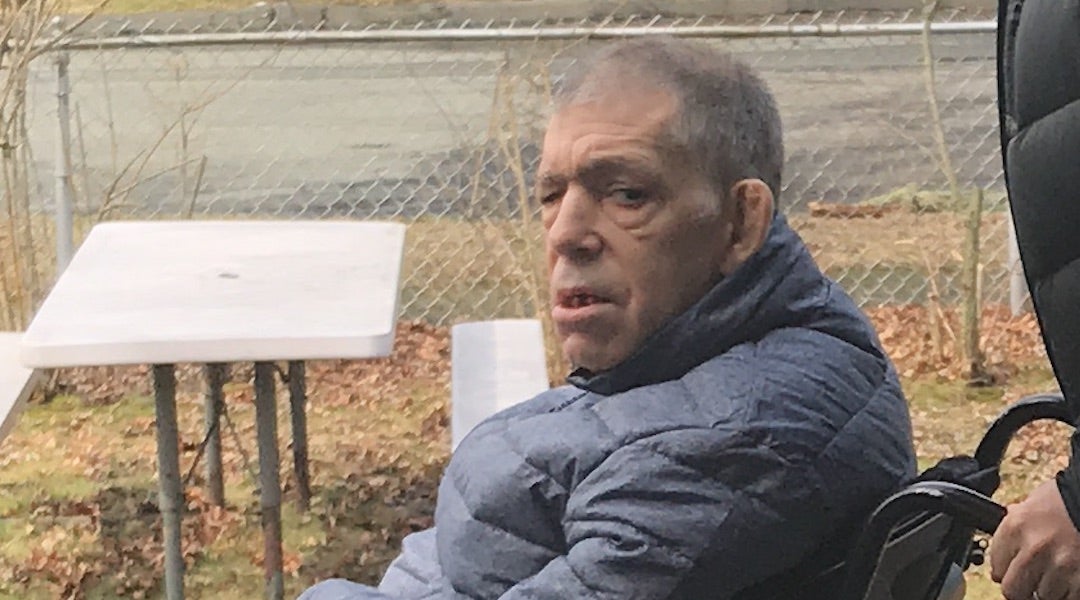
Jeffrey Sanderson died April 18, 2020 of COVID-19. (Courtesy photo)
ADVERTISEMENT
BOSTON (JTA) – For Jeffrey Sanderson, it was the small things in life that brought the most joy.
He couldn’t get enough of old episodes of “I Love Lucy,” and “Leave it to Beaver,” which tickled his sense of humor. An outing to the park, with a stop for french fries at McDonald’s, were adventures of the best kind. And always, sharing jokes with his family was sure to set off fits of laughter.
Sanderson died on April 18 of COVID-19. He was 62 and lived in a group home for people with intellectual disabilities in Lynnfield, Massachusetts.
“He was the most endearing person,” said his twin brother, Jay Sanderson, the CEO of the Jewish Federation of Los Angeles. “He was funny, he was charming. The things he loved, he really loved. He had such joy for little things.”
The Sanderson brothers grew up on the North Shore of Boston. Just before their fifth birthday, their father died of a heart attack. It was not long after Jeffrey had moved out of the family home for the intensive caretaking he required.
After moving to Los Angeles, Jay Sanderson made frequent cross-country trips to visit his brother and mother, who remained in the area until last summer, when she relocated to a senior residence in California.
Beginning in late March, COVID-19 spread among the four residents of the home where Sanderson had moved only four months before. The decline in his health came quickly, and there was no opportunity to visit before he died. The three other residents survived the virus, Jay Sanderson said.
Because of the pandemic, Jay Sanderson had to inform his mother by phone that Jeffrey had died, even though his mother lives only three miles away.
“I couldn’t comfort her or hug her over the loss of her son,” he said.
Jay Sanderson credits his brother with teaching him about kindness and empathy, lessons that shaped his personal and professional life.
“He taught us how to care for others, how to love without judgment and how to appreciate the little things,” Jay wrote in a letter to friends.
“I do what I do because of him,” said Jay’s son Jonah, a rabbinical student.
“He had the most beautiful neshama,” Jonah said, using the Hebrew word for soul. “He was the most beautiful soul you’d ever see.”
Jeffrey Sanderson leaves his mother, Rhoda Sanderson; brother Jay and his wife, Laura Lampert Sanderson; nephew Jonah and niece Isabelle.
Suscribirse a:
Comentarios (Atom)

